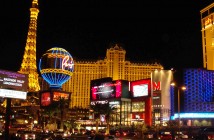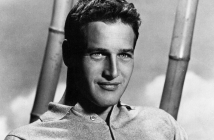From 5-23 June, the Museum of Modern Art will present ‘MK2: Carte blanche,’ a film series devoted to the eclectic films produced by the company MK2. This year is the fortieth anniversary of the company’s founding, and the film series is a celebration of both the company and its founder Marin Karmitz. MK2 is one of the biggest independent film companies in France, given its roster of over a hundred films produced and distributed. It is also arguably one of the most cherished: over the decades, Karmitz and MK2 have collaborated with some of the most inventive and thought-provoking filmmakers not just once but continually, and not confined to France: Alain Resnais, Claude Chabrol, Krzysztof Kieslowski, Olivier Assayas, Abbas Kiarostami primarily but also Jafar Panahi and Mohsen Makhmalbaf, Michael Haneke, and Hong Sang-soo.
For the series, MoMA asked Karmitz to choose some of his favourite films, resulting in an impressive eighteen-film tapestry of narratives, perspectives, and film styles that has helped to constitute global and transnational art cinema during the last four decades. As a segue to this film series, below is a brief sketch of MK2 and founder Karmitz as well as a preview of some of the films included in the series.
*****
Marin Karmitz hails from a family that immigrated to France as refugees in 1947, a time of tumultuous postwar readjustments from fascism to pre-communism and then to communism in leadership in his native country of Romania. In the 1950s, he concluded his studies in France by passing the exam for director of photography at the film school Institut Des Hautes Études Cinématographiques (IDHEC, now École Nationale Supérieure des Métiers de l’Image et du Son, or La Fémis) in Paris.
IDHEC was the main French film school at the time, counting among its students the likes of Alain Resnais and Agnès Varda, who would become Karmitz’ close colleagues in the decades to come. Subsequently, Karmitz worked as an assistant director in the early 1960s, most prominently for Varda’s debut feature Cléo de 5 à 7/Cléo From 5 to 7 (1962). Through Varda, Karmitz met Jean-Luc Godard, who hired him as the assistant director for his short film La paresse/Sloth (1962) and also requested that he help Jacques Rozier on his own feature debut Adieu Philippine (1962). As Richard Brody writes in great detail in his book Everything Is Cinema: The Working Life of Jean-Luc Godard (2008), Karmitz ‘gathered and organized the footage, found an editing room, and helped Rozier finish the film in time for the Cannes festival in May 1962’ (129). As Brody continues about this point in Godard’s working life, one could even argue that Karmitz played a role in Godard’s cinematic development: at Godard’s request, Karmitz lent him some technical film books and ‘[w]hatever Godard found in Karmitz’s books worked wonders’ (129). Little did Karmitz know that he himself would work wonders for French (auteur) cinema and world cinema in general in the decades to come in his own way.
An aspiring director himself, in 1964 Karmitz founded the production company MK Production with the initial goal of producing his own films. In the mid-1960s, he thus made several short films (Les idoles; Nuit noire, Calcutta; Comédie; Adolescence), some of which were based on the works of Marguerite Duras and Samuel Beckett. In 1967, MK Production became MK2 Production, and in 1974 he established a distribution arm to the company, MK2 Diffusion. Between 1967 and 1974, Karmitz directed three feature films, all of which reflected and expressed the leftist militant activist climate of France at the time and his sympathies: 7 jours ailleurs/Seven Days Somewhere Else (1968), Camarades/Comrades (1968), and Coup pour coup/Blow For Blow (1972). In truth, what motivated Karmitz to establish MK2 Diffusion in the first place was the rejection of Coup pour coup by distributors, who considered the film on workers organising and going on strike at their textile mill too risky of a product. At the same time, Karmitz also opened his first cinema, which he significantly named ’14 juillet,’ resulting in a formidable integrated company (production, distribution, exhibition). He would develop and expand the exhibition arm of MK2 into the one of the most prominent French art cinema theatre chains that it continues to be to this day. Two of the films screening in the series, in fact, touch upon this particular period of Karmitz’ life and politics: his last and blistering directorial effort (though collectively signed) of worker solidarity, Coup pour coup, and committed leftist filmmaker Romain Goupil’s evocative debut feature Mourir à trente ans/Half A Life (1982), a semi-autobiographical documentary on his own experiences as a youth Trotskyite and those of his best friend, whose suicide in the late 1970s prompted the film in the first place.
The 1980s and 1990s saw further expansion of MK2 into television (MK2 TV) and publishing (MK2 Editions), among others, and has amassed a catalogue that includes the exclusive rights to the films of Charles Chaplin and François Truffaut for sales and exhibition. Further expansion included music (MK2 Music), among others, when Karmitz brought his son Nathanaël into the family company in the late 1990s. On this note, the majority of the films in the series were made in the 1980s and 1990s, when MK2 hit the ground running: the film that marked Godard’s ‘return’ to commercial cinema, Sauve qui peut (la vie) (1980); some of Karmitz’ longtime collaborators and Godard’s ‘New Wave’ colleagues Alain Resnais, Mélo (1986), and Claude Chabrol, La cérémonie (1995); Kieslowski’s devastatingly sensual and profound ‘Three Colours’ trilogy of the mid-1990s, Bleu (1993), Blanc (1994), and Rouge (1994), his international breakthrough but also tragically his last films; Yilmaz Güney’s own return to filmmaking, in France, after escaping from Turkey where he had been imprisoned, The Wall (1983), which turned out to be his last film; inversely, Pavel Lounguine’s absurdist debut feature Taxi Blues (1990), made at a very crucial transitional sociohistorical moment in Russia, as reflected in the characters of a cantankerous, animalistic ‘old Russia’ taxi driver and a cerebral Jewish saxophonist.
In the mid-2000s, Karmitz shared management duties with his son Nathanaël and independent producer Charles Gillibert, eventually shifting leadership to the former. Gillibert spent ten years at MK2, but parted ways when the company made the decision at the end of 2012 to cease production and distribution and focus exclusively on sales and exhibition. Such a decision is lamentable, as MK2 is known for its amiable conditions for filmmakers to realise their cinematic visions. Yet the ‘failures’ of films produced in the last couple of years made Karmitz and Nathanaël rethink their goals with MK2, as Karmitz admits in an interview with Enguérand Renault earlier this year.
Granted, in that same interview, Karmitz also states that the decision to stop producing/ or distributing films is not permanent. He remains open to possibilities and projects, if the right material comes along. That is, if the right filmmaker comes along or he reunites with one. As he shares in the interview, ‘If Abbas Kiarostami suggests a new film to me, I will do it of course, because he’s a true master.’ On this note, among the handful of Kiarostami films that MK2 has produced, the formally austere but lively and improvisatory digital production Ten (2002) will be screened in the film series. Related to such unadorned and episodic film form and also included in the series are Michael Haneke’s Code inconnu: Récit incomplet de divers voyages/Code Unknown: Incomplete Tales of Several Journeys (2000) and Hong Sang-soo’s Woman is the Future of Man (2004). Incidentally, the 2000s was MK2’s most prolific decade of production.
Kicking things off this Thursday, 5 June, is young Canadian Xavier Dolan’s sultry and unsettling Tom à la ferme/Tom at the Farm (2013), an adaptation of Michel Marc Bouchard’s domestic play of tensions, secrets, and charades of the same title, with Dolan and Karmitz in attendance.
For more information, visit http://www.moma.org/visit/calendar/films/1477.
References
Brody, Richard (2008), Everything Is Cinema: The Working Life of Jean-Luc Godard, New York: Holt Paperbacks.
Renault, Enguérand (2014), ‘Marin Karmitz : «J’arrête de produire des films car je ne me reconnais plus dans le cinéma», Le Figaro.fr, http://www.lefigaro.fr/medias/2014/02/23/20004-20140223ARTFIG00196-marin-karmitz-j-arrete-de-produire-des-films-car-je-ne-me-reconnais-plus-dans-le-cinema.php.




